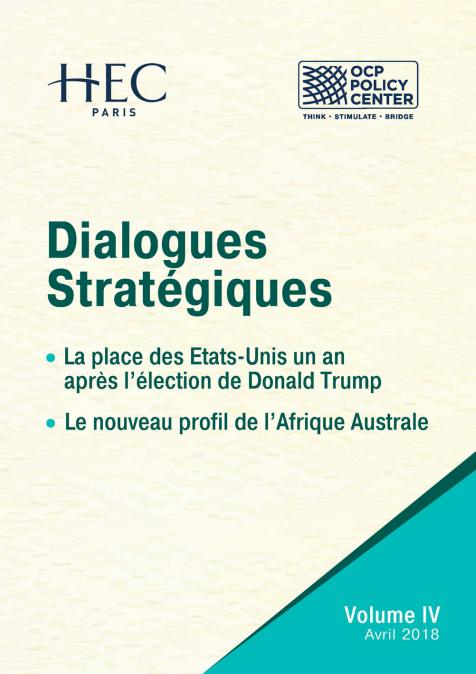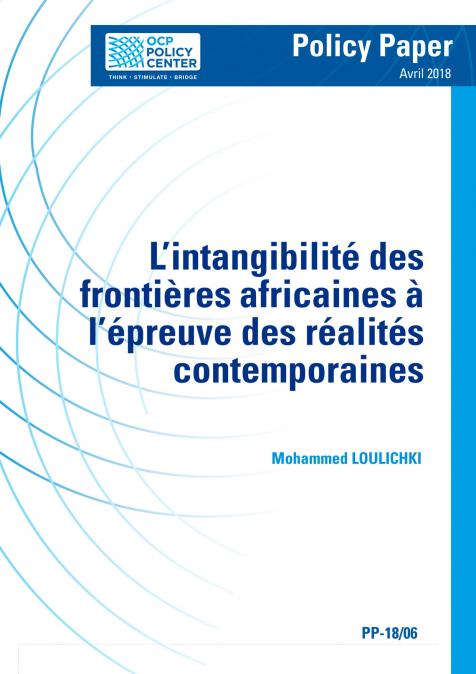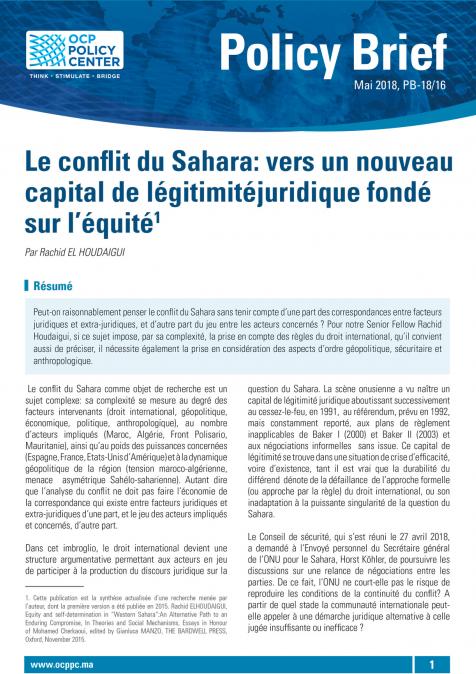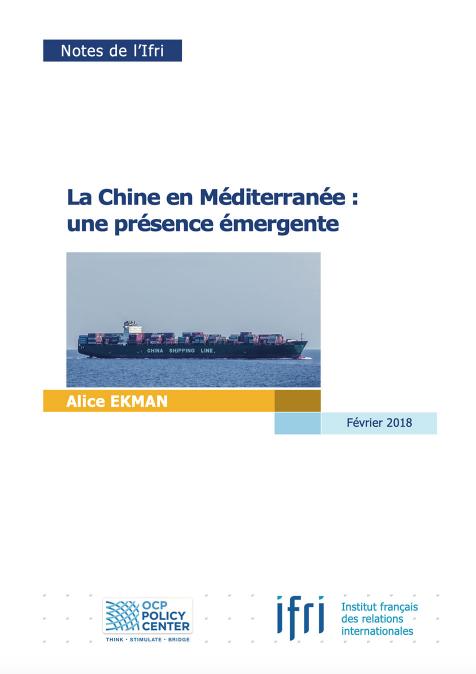The Middle East faces a web of complex crises driven by historical legacies, regional power struggles, and ongoing geopolitical tensions. Among these crises, the Israeli-Palestinian conflict stands out as a deeply entrenched issue, marked by competing national aspirations and territorial disputes. The region’s challenges are further compounded by a mix of deeply rooted conflicts, sectarian divides, and the influence of both regional and global actors. These crises have far-reaching implications, affecting global security, economic stability, and international diplomacy. Understanding the dynamics of these conflicts requires a comprehensive view of their historical contexts and current geopolitical shifts. In this interview, our columnist Helmut Sorge hosts Charles Kupchan, Senior Fellow at the Council on Foreign Relations (CFR). Kupchan shares insights into the underlying factors shaping the Middle East's past and ongoing crises, including the Israeli-Palestinian conflict. He explores the roles of major international players and discusses potential paths toward resolution, shedding light on the region’s complex landscape and its broader impact on global affairs.
RELATED CONTENT
-
AuthorsMay 25, 2018Les conflits ouverts qui secouent le continent africain trouvent leur source essentiellement dans la lutte pour le pouvoir, l’appropriation des ressources naturelles ou la problématique des frontières. Après avoir été occultés pendant les premières décennies qui ont suivi les indépendances africaines, à la faveur de l’adoption par l’OUA du principe de l’intangibilité des frontières, les contentieux territoriaux ont refait surface et sous-tendent plusieurs situations conflictuelles à ...
-
AuthorsMay 25, 2018Peut-on raisonnablement penser le conflit du Sahara sans tenir compte d’une part des correspondances entre facteurs juridiques et extra-juridiques, et d’autre part du jeu entre les acteurs concernés ? Pour notre Senior Fellow Rachid Houdaigui, si ce sujet impose, par sa complexité, la prise en compte des règles du droit international, qu’il convient aussi de préciser, il nécessite également la prise en considération des aspects d’ordre géopolitique, sécuritaire et anthropologique. ...
-
 AuthorsMay 16, 2018He has reserved his page in history. Half a century ago Ernest “Che” Guevara was an icon of a global youth rebellion, a revolutionary pop star for the dreaming romantic generation of 1968- kids of the bourgeois conformist society who never had the courage to risk their lives or time for the oppressed. Instead, the angry restless sympathizers of Cuban and Vietnamese fighters threw stones and molotov cocktails, some smoked pot and shouted their support to Ho Chi Minh, the frail ...
AuthorsMay 16, 2018He has reserved his page in history. Half a century ago Ernest “Che” Guevara was an icon of a global youth rebellion, a revolutionary pop star for the dreaming romantic generation of 1968- kids of the bourgeois conformist society who never had the courage to risk their lives or time for the oppressed. Instead, the angry restless sympathizers of Cuban and Vietnamese fighters threw stones and molotov cocktails, some smoked pot and shouted their support to Ho Chi Minh, the frail ... -
 AuthorsMay 10, 2018These days, the word "crisis" is gaining a new urgency around the globe… Crisis of humanity, of water, hunger, poverty, climate. Crisis of war, destruction, terrorism. And a crisis of thought, intellectual exchange, theories transfered into reality. And a crisis of think tanks, eventually, although their work matters, since it sends signals, offers proposals and applicable solutions. In that context, Olusegun Obasanjo, former President of Nigeria and Board member of the ...
AuthorsMay 10, 2018These days, the word "crisis" is gaining a new urgency around the globe… Crisis of humanity, of water, hunger, poverty, climate. Crisis of war, destruction, terrorism. And a crisis of thought, intellectual exchange, theories transfered into reality. And a crisis of think tanks, eventually, although their work matters, since it sends signals, offers proposals and applicable solutions. In that context, Olusegun Obasanjo, former President of Nigeria and Board member of the ... -
 AuthorsSabine CessouMay 9, 2018Think tanks are blooming in Africa, as they have been in the USA, Europe and China… Some are already mature, like the Codesria, launched in 1973 in Dakar (Senegal) or the Institute for Security Studies (ISS), first established in 1991 in Pretoria, with regional offices opened in Cape Town, Addis Abeba and Nairobi. Some are still young and spreading their wings, like AfriHeritage in Nigeria, founded in 2000 or the Groupe de recherche et d’analyse appliquées pour ...
AuthorsSabine CessouMay 9, 2018Think tanks are blooming in Africa, as they have been in the USA, Europe and China… Some are already mature, like the Codesria, launched in 1973 in Dakar (Senegal) or the Institute for Security Studies (ISS), first established in 1991 in Pretoria, with regional offices opened in Cape Town, Addis Abeba and Nairobi. Some are still young and spreading their wings, like AfriHeritage in Nigeria, founded in 2000 or the Groupe de recherche et d’analyse appliquées pour ... -
 AuthorsSabine CessouApril 13, 2018L’avenir de l’Inde a fait débat le 11 avril en présence de 110 personnes, lors des 5èmes Dialogues stratégiques, une rencontre biannuelle organisée à Paris par l’OCP Policy Center et le Centre HEC de géopolitique. En 2050, l’Inde comptera 17 % de la population globale et aura le troisième PIB mondial. « Le ralentissement de la croissance en Chine n’occultera peut-être plus l’essor de cette grande démocratie », a noté Jacques Gravereau, président du HEC Eurasia Institute. Soul ...
AuthorsSabine CessouApril 13, 2018L’avenir de l’Inde a fait débat le 11 avril en présence de 110 personnes, lors des 5èmes Dialogues stratégiques, une rencontre biannuelle organisée à Paris par l’OCP Policy Center et le Centre HEC de géopolitique. En 2050, l’Inde comptera 17 % de la population globale et aura le troisième PIB mondial. « Le ralentissement de la croissance en Chine n’occultera peut-être plus l’essor de cette grande démocratie », a noté Jacques Gravereau, président du HEC Eurasia Institute. Soul ... -
 AuthorsJeremy GuezPascal ChaigneauCapitaine Marianne Peron DoiseRodolphe MonnetPhilippe TauzinFlorent ParmentierApril 10, 2018L’année 2018 peut être marquée par le signe de l’incertitude. Au niveau géopolitique, l’élection de Donald Trump a chamboulé la perception des États Unis de par le monde et remis en question l’ordre international par la renégociation des accords internationaux et par un retour vers un protectionnisme américain jugé dangereux par le partenaire historique européen. En première partie de cet ouvrage, Les auteurs s’interroge sur les paradoxes de la politique américaine et de l’impact de ...
AuthorsJeremy GuezPascal ChaigneauCapitaine Marianne Peron DoiseRodolphe MonnetPhilippe TauzinFlorent ParmentierApril 10, 2018L’année 2018 peut être marquée par le signe de l’incertitude. Au niveau géopolitique, l’élection de Donald Trump a chamboulé la perception des États Unis de par le monde et remis en question l’ordre international par la renégociation des accords internationaux et par un retour vers un protectionnisme américain jugé dangereux par le partenaire historique européen. En première partie de cet ouvrage, Les auteurs s’interroge sur les paradoxes de la politique américaine et de l’impact de ... -
 AuthorsMouhamadou Moustapha LyMarch 28, 2018Ce mardi 21 Mars 2018, quarante-quatre chefs d’Etat et de gouvernement réunis à Kigali (Rwanda) signaient l’accord de création de la zone de libre échange continentale (Continental Free Trade Area, CFTA). Cet accord historique marque la volonté des Etats africains d’aller vers la mise en place à l’échelle du continent d’un marché commun où les échanges de biens et de services seraient libres et la circulation des capitaux et des personnes sans contraintes. Tels que précisés dans la ...
AuthorsMouhamadou Moustapha LyMarch 28, 2018Ce mardi 21 Mars 2018, quarante-quatre chefs d’Etat et de gouvernement réunis à Kigali (Rwanda) signaient l’accord de création de la zone de libre échange continentale (Continental Free Trade Area, CFTA). Cet accord historique marque la volonté des Etats africains d’aller vers la mise en place à l’échelle du continent d’un marché commun où les échanges de biens et de services seraient libres et la circulation des capitaux et des personnes sans contraintes. Tels que précisés dans la ... -
 AuthorsMarch 15, 2018« Revise, Reboot, Rebuild : Strategies for a time of Distrust »: that was this year’s theme for the Brussels Forum, a yearly high-level conference held from March 8th to 10th by the US think tank German Marshall Fund (GMF), partner of the OCP Policy Center who attended the event through its delegation. This meeting of some 400 policymakers, academics and private sector operators is reviewing the relationship between Europe and the United States. Brexit, the Trump administration ...
AuthorsMarch 15, 2018« Revise, Reboot, Rebuild : Strategies for a time of Distrust »: that was this year’s theme for the Brussels Forum, a yearly high-level conference held from March 8th to 10th by the US think tank German Marshall Fund (GMF), partner of the OCP Policy Center who attended the event through its delegation. This meeting of some 400 policymakers, academics and private sector operators is reviewing the relationship between Europe and the United States. Brexit, the Trump administration ... -
AuthorsAlice EkmanFebruary 22, 2018La présence chinoise en Méditerranée fait l’objet d’interrogations croissantes au sein des diplomaties des pays du Maghreb comme d’Europe du Sud. En effet, ces cinq dernières années, la Chine décline avec un activisme croissant ses priorités nationales à l’échelle méditerranéenne. Cet activisme peut se résumer en trois axes principaux : création de forums de coopération sectorielle Chine-Europe du Sud, investissements dans les infrastructures de transport, énergétiques et de télécom ...




